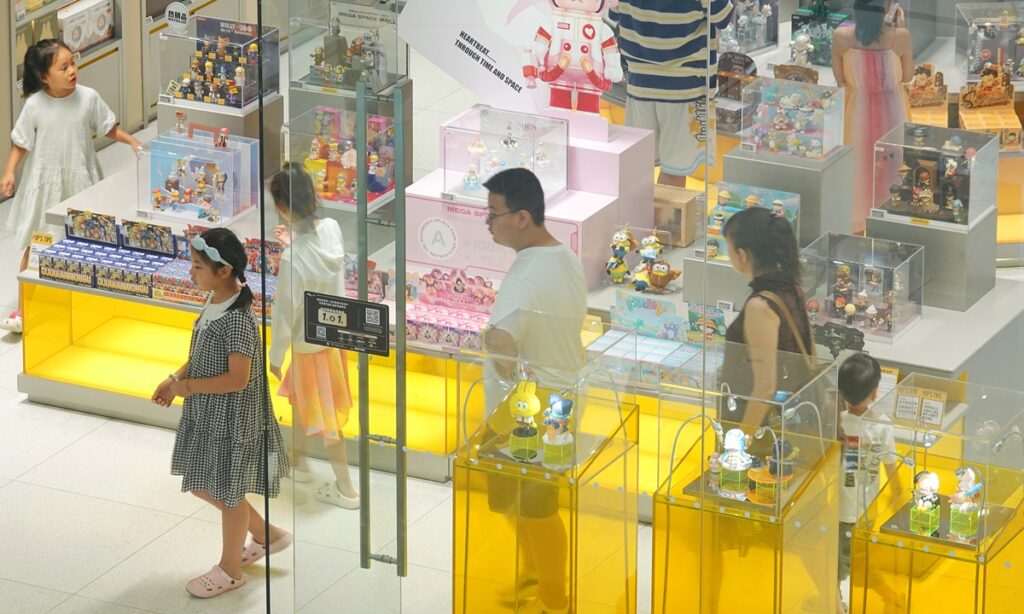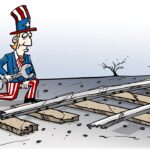China’s Consumer Price Index (CPI), a key indicator of inflation, witnessed a turnaround in August, in line with market expectations. This reversal of negative growth seen in the previous month underscores the nation’s ongoing recovery in the consumer market amid a mix of economic stimulus measures implemented following a top leadership meeting in July.
With domestic demand steadily rising, it is expected that domestic CPI will register a higher year-on-year increase in the coming months, experts said, refuting Western claims that a deflation crisis is gripping the world’s second-largest economy.
CPI rose by 0.1 percent on a yearly basis in August, while the factory-gate prices of bulk commodities posted a narrow decline, according to data released by the National Bureau of Statistics (NBS) on Saturday.
Pork prices, a significant factor influencing food prices, decreased by 17.9 percent year-on-year in August, narrowing 8.1 percentage points from the fall in July. The price of eggs rose by 3.0 percent, reversing a negative trend seen in the previous month.
Among non-food items, air tickets, tourism products and hotels all registered double-digit price growth in August, building upon the gains in July thanks to a summer holiday spending peak.
Core CPI, deducting food and energy prices, rose by 0.8 percent year-on-year, maintaining a stable trajectory.
In month-on-month terms, the consumer index increased by 0.3 percent, 0.1 percentage point faster than the growth in July, reflecting a continuous improvement in the relationship between demand and supply, as the consumer market maintains a recovery momentum, NBS statistician Dong Lijuan said in a statement.
An increase in pork and fuel prices, along with expansion in the services sector in the summer holiday, mainly drove the CPI up in August from a bottoming out in the previous month, Wang Qing, chief macroeconomic analyst at Golden Credit Rating International, told the Global Times on Saturday.
Predicating a 0.1 percent increase for the CPI in September, Wang said the current phenomenon of low product prices will continue throughout the remainder of the year, “which means following-up stimulus measures to boost consumption would become more pronounced,” Wang said.
In early August, China’s top economic planner rolled out a range of measures to boost consumption, vowing to stimulate spending on a wide range of items and services, including new-energy vehicles, home appliances, electronics, catering, cultural and tourism sectors, as well as in rural areas.
Weak price data since the start of the second quarter has raised market concerns about deflation that could potentially harm the nation’s economic recovery.
However, Wang said there are no fundamental signs suggesting that China is facing a deflation risk on a full-year basis.
Deflation usually means a decline in money supply, prolonged low prices and economic recession. The temporary low prices in China shouldn’t be directly equated with deflation, he said.
NBS spokesperson Fu Linghui said previously that there were multiple reasons for the weak CPI, including a complex and severe international environment, a sluggish world economy, insufficient domestic demand and a relatively high base throughout the previous year. He stressed that the weakness is temporary.
The NBS also announced on Saturday that the August Producer Price Index (PPI), a main gauge of factory prices, fell by 3.0 percent year-on-year, narrowing 1.4 percentage points from the decrease in the previous month. This marks the second consecutive month to witness such contraction.
In June, PPI hit its lowest point since 2016 with a decline of 5.4 percent.
“Propped up by stimulus measures and the low base effect of the same period last year, the year-on-year decline in PPI will continue to narrow in the next few months, which will play a positive role in improving the production and operation of enterprises,” Wu Chaoming, deputy head of the Chasing Research Institute, told the Global Times on Saturday.
However, due to factors such as negative growth in real estate investment and continued sluggish private investment, domestic upstream industrial products are expected to experience a weak recovery, Wu said, adding that the estimation of a negative PPI growth for the whole year may remain unchanged.
(Global Times)




